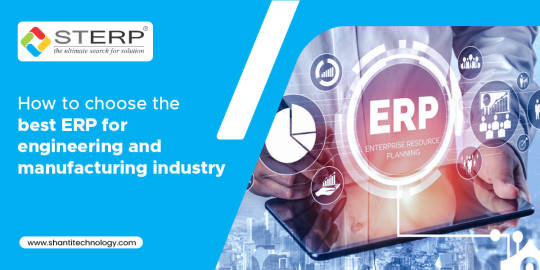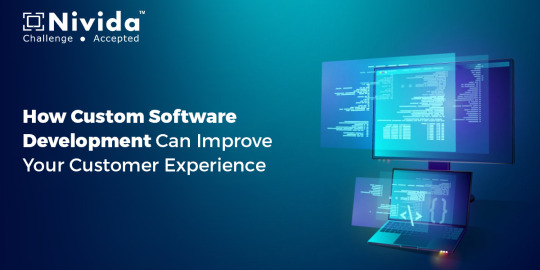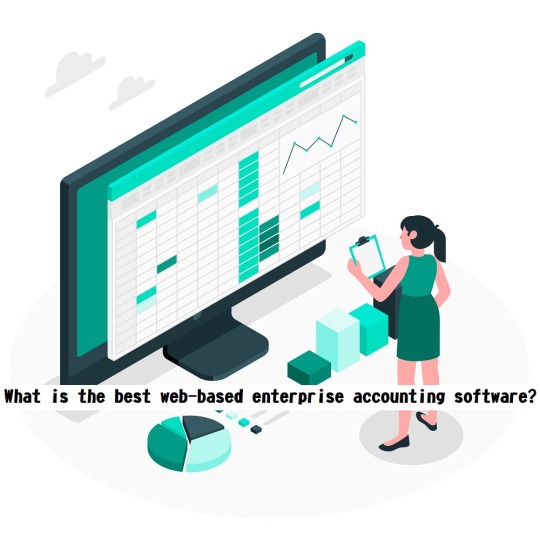#Security Features in a CRM Software
Explore tagged Tumblr posts
Text

1 note
·
View note
Text
ONLYOFFICE
In today’s fast-paced digital landscape, businesses and individuals need versatile tools to manage documents, collaborate efficiently, and enhance productivity. ONLYOFFICE is a robust office suite that caters to these needs, offering a blend of document management, collaboration, and integration capabilities. This article dives into what ONLYOFFICE is, its key features, benefits, and use…
#business software solutions#cloud-based office suite#CRM integration#cross-platform office suite#document collaboration#document editing software#document management#educational collaboration software#Microsoft Office alternative#office suite#ONLYOFFICE#ONLYOFFICE benefits#ONLYOFFICE features#open-source office software#Productivity Tools#project management tools#real-time editing#remote team tools#secure office suite#team collaboration software
0 notes
Text
Cloud Computing: Definition, Benefits, Types, and Real-World Applications
In the fast-changing digital world, companies require software that matches their specific ways of working, aims and what their customers require. That’s when you need custom software development services. Custom software is made just for your organization, so it is more flexible, scalable and efficient than generic software.
What does Custom Software Development mean?
Custom software development means making, deploying and maintaining software that is tailored to a specific user, company or task. It designs custom Software Development Services: Solutions Made Just for Your Business to meet specific business needs, which off-the-shelf software usually cannot do.
The main advantages of custom software development are listed below.
1. Personalized Fit
Custom software is built to address the specific needs of your business. Everything is designed to fit your workflow, whether you need it for customers, internal tasks or industry-specific functions.
2. Scalability
When your business expands, your software can also expand. You can add more features, users and integrations as needed without being bound by strict licensing rules.
3. Increased Efficiency
Use tools that are designed to work well with your processes. Custom software usually automates tasks, cuts down on repetition and helps people work more efficiently.
4. Better Integration
Many companies rely on different tools and platforms. You can have custom software made to work smoothly with your CRMs, ERPs and third-party APIs.
5. Improved Security
You can set up security measures more effectively in a custom solution. It is particularly important for industries that handle confidential information, such as finance, healthcare or legal services.
Types of Custom Software Solutions That Are Popular
CRM Systems
Inventory and Order Management
Custom-made ERP Solutions
Mobile and Web Apps
eCommerce Platforms
AI and Data Analytics Tools
SaaS Products
The Process of Custom Development
Requirement Analysis
Being aware of your business goals, what users require and the difficulties you face in running the business.
Design & Architecture
Designing a software architecture that can grow, is safe and fits your requirements.
Development & Testing
Writing code that is easy to maintain and testing for errors, speed and compatibility.
Deployment and Support
Making the software available and offering support and updates over time.
What Makes Niotechone a Good Choice?
Our team at Niotechone focuses on providing custom software that helps businesses grow. Our team of experts works with you throughout the process, from the initial idea to the final deployment, to make sure the product is what you require.
Successful experience in various industries
Agile development is the process used.
Support after the launch and options for scaling
Affordable rates and different ways to work together
Final Thoughts
Creating custom software is not only about making an app; it’s about building a tool that helps your business grow. A customized solution can give you the advantage you require in the busy digital market, no matter if you are a startup or an enterprise.
#software development company#development company software#software design and development services#software development services#custom software development outsourcing#outsource custom software development#software development and services#custom software development companies#custom software development#custom software development agency#custom software development firms#software development custom software development#custom software design companies#custom software#custom application development#custom mobile application development#custom mobile software development#custom software development services#custom healthcare software development company#bespoke software development service#custom software solution#custom software outsourcing#outsourcing custom software#application development outsourcing#healthcare software development
2 notes
·
View notes
Text
The Rise of Cloud-Based CRM Solutions: Why Businesses Are Making the Shift in 2025

Introduction: Cloud-based CRM systems are becoming increasingly popular in businesses across industries. The appeal lies in their scalability, cost-efficiency, and the flexibility they provide to businesses of all sizes. As we progress into 2025, cloud CRMs are helping companies streamline their operations and enhance customer interactions.
1. Scalability for Business Growth: Cloud CRMs allow businesses to grow without the limitations of traditional on-premise solutions. As your company expands, you can easily scale up your CRM infrastructure to accommodate more users, features, and integrations.
2. Enhanced Accessibility: Cloud CRMs break down geographical barriers by offering anytime, anywhere access to customer data. This ensures that teams, whether in the office, working remotely, or traveling, have access to the same information and can engage with customers in real-time.
3. Cost-Efficiency: Instead of making large upfront investments in infrastructure, cloud-based CRMs use a subscription model, which helps businesses save on hardware, software, and IT maintenance. This makes them an attractive option for companies looking to minimize overhead costs.
4. Security and Backup: Security is a top priority for cloud-based CRMs. These systems include robust features such as encryption and automatic backups to safeguard customer data. This reduces the risk of data loss due to unforeseen events.
Cloud-based CRMs offer a combination of flexibility, security, and scalability, which makes them an ideal solution for businesses looking to improve efficiency and customer experience. For more insights into CRM development and how it can transform your business, you can explore different CRM solutions here.
2 notes
·
View notes
Text
Nonprofit Software: A Key to Efficient Mission Management
Nonprofit organizations operate in a challenging environment where maximizing impact is essential while keeping administrative costs low. Managing donations, volunteers, events, and operational workflows can be overwhelming without the right tools. Nonprofit software has emerged as a vital solution, tailored to address the specific needs of mission-driven organizations. These tools streamline operations, enhance donor engagement, and ultimately help nonprofits achieve their goals more effectively.
In this article, we’ll explore the types, benefits, and future of nonprofit software, shedding light on how it empowers organizations to thrive in today’s competitive landscape.
What is Nonprofit Software?
Nonprofit software refers to digital tools and platforms specifically designed to help nonprofits manage their operations efficiently. Unlike generic software, nonprofit-specific tools address core needs such as donor relationship management, fundraising, volunteer coordination, grant tracking, and financial reporting. With features tailored to their unique challenges, nonprofits can save time, optimize resources, and focus on their missions.
Types of Nonprofit Software
Donor Management Software Also known as nonprofit CRM (Customer Relationship Management), donor management software helps organizations track donor interactions, manage contributions, and personalize engagement. Tools like Bloomerang, DonorPerfect, and Little Green Light simplify donor retention and make campaigns more effective.
Fundraising Software Platforms like Classy, Givebutter, and Fundly empower nonprofits to create online fundraising campaigns, process donations, and analyze results. Peer-to-peer fundraising, recurring donations, and mobile giving features enhance the donor experience.
Volunteer Management Tools Managing volunteers is essential for many nonprofits. Tools like VolunteerHub and SignUpGenius streamline recruitment, scheduling, and communication, ensuring an organized and engaged volunteer base.
Grant Management Software Grant tracking tools such as Foundant or Submittable help nonprofits identify funding opportunities, submit applications, and manage deadlines and compliance, improving the chances of securing vital grants.
Accounting and Financial Management Software Nonprofits need tools to maintain transparency and manage budgets. Accounting software like QuickBooks for Nonprofits or Aplos ensures accurate reporting, proper fund allocation, and regulatory compliance.
Event Management Software Nonprofits often rely on events to engage supporters and raise funds. Tools like Eventbrite or Cvent simplify event planning, ticketing, and attendee management, creating seamless experiences for donors and participants.
Benefits of Nonprofit Software
Operational Efficiency Nonprofit software automates routine tasks such as data entry, reporting, and communication, allowing staff to focus on mission-critical activities.
Improved Donor Relationships With donor management tools, nonprofits can personalize outreach, track giving history, and maintain strong relationships that increase donor retention.
Transparency and Accountability Financial and grant management tools ensure that nonprofits comply with regulations and demonstrate transparency to stakeholders, boosting credibility.
Better Decision-Making Analytics and reporting features provide valuable insights into campaign performance, donor behavior, and operational efficiency, enabling data-driven decisions.
Scalability As nonprofits grow, software solutions can scale to accommodate larger donor bases, expanded programs, and increasing complexity.
Challenges of Implementing Nonprofit Software
While nonprofit software offers significant benefits, organizations may face challenges, including:
Budget Constraints: Even with nonprofit discounts, advanced tools can strain limited budgets.
Learning Curve: Staff and volunteers may require training to use the software effectively.
Integration Issues: Ensuring new tools work seamlessly with existing systems can be complex.
Data Security: Protecting sensitive donor and organizational data is crucial and requires robust security measures.
Organizations should evaluate their specific needs, select user-friendly tools, and partner with providers offering support and training to overcome these challenges.
Future of Nonprofit Software
The future of nonprofit software lies in innovation and technology integration. Artificial intelligence (AI) is already being used to predict donor behavior, optimize outreach, and analyze trends. Blockchain technology is enhancing transparency in donation tracking, while virtual reality (VR) is creating immersive experiences to engage donors. These advancements will further empower nonprofits to achieve their missions efficiently and effectively.
Conclusion
Nonprofit software is transforming the way mission-driven organizations operate. From donor management and fundraising to financial tracking and volunteer coordination, these tools address the unique challenges nonprofits face. By adopting the right software solutions, organizations can save time, optimize resources, and focus on what truly matters—making a difference in the world.
As technology continues to evolve, nonprofit software will remain a cornerstone of effective mission management, helping organizations thrive in a rapidly changing environment. For nonprofits seeking to maximize their impact, investing in the right software is not just an option—it’s a necessity.
3 notes
·
View notes
Text
What is SaaS and How to Build a SaaS Platform
What is SaaS? SaaS, or Software as a Service, is a cloud-based software delivery model where applications are hosted online and accessed through the internet. Unlike traditional software that requires installation, SaaS applications run on web browsers, offering convenience and flexibility. The provider manages all technical aspects, including updates, maintenance, and security, while users pay a subscription fee for access.
SaaS is popular for its cost-effectiveness and scalability. Businesses use SaaS for tools like customer relationship management (CRM) systems, project management platforms, and communication solutions. Consumers also rely on SaaS for entertainment and personal productivity.
How to Build a SaaS Platform If you're wondering how to build a SaaS platform, here are the essential steps:
Define Your Purpose: Start by identifying a problem that your SaaS platform will address. Research your audience and focus on a specific niche.
Plan Features: List features that add value, such as easy navigation, integrations, and real-time collaboration. Scalability should also be a priority.
Select the Right Technology: Choose technologies like React for frontend development, Node.js or Python for backend, and cloud hosting platforms like AWS.
Create an MVP: Build a Minimum Viable Product to test your concept, gather feedback, and refine your platform.
Ensure Security: Implement strong encryption, secure authentication, and regular updates to protect user data.
By understanding what SaaS is and following these steps, you can build a successful SaaS platform that meets market needs.
2 notes
·
View notes
Text
How to Choose the Best ERP for Engineering and Manufacturing Industry
In today’s fast-paced world, engineering and manufacturing companies face increasing pressure to deliver high-quality products while maintaining efficiency and cost-effectiveness. Implementing the right Enterprise Resource Planning (ERP) software can significantly enhance operations, streamline workflows, and boost productivity. However, with numerous options available, selecting the best ERP software for the engineering and manufacturing industry can be challenging. This guide will help you navigate this decision-making process and choose the most suitable solution for your business.

Why ERP is Crucial for Engineering and Manufacturing
ERP software integrates various business processes, including production, inventory management, supply chain, finance, and human resources. For engineering and manufacturing companies, ERP solutions are particularly vital because they:
Facilitate real-time data sharing across departments.
Enhance supply chain management.
Optimize production planning and scheduling.
Ensure compliance with industry standards.
Reduce operational costs.
Partnering with the right Engineering ERP software company ensures that your organization leverages these benefits to stay competitive in a dynamic market.
Steps to Choose the Best ERP for Engineering and Manufacturing
1. Understand Your Business Needs
Before exploring ERP solutions, evaluate your company’s specific requirements. Identify the pain points in your current processes and prioritize the features you need in an ERP system. Common features for engineering and manufacturing companies include:
Bill of Materials (BOM) management
Production planning and scheduling
Inventory control
Quality management
Financial reporting
Consulting with a reputed ERP software company can help you match your needs with the right features.
2. Look for Industry-Specific Solutions
Generic ERP software might not address the unique needs of the engineering and manufacturing sector. Opt for an ERP software in India that offers modules tailored to your industry. Such solutions are designed to handle specific challenges like multi-level BOM, project costing, and shop floor management.
3. Check Vendor Expertise
Choosing a reliable vendor is as important as selecting the software itself. Research ERP solution providers with a strong track record in serving engineering and manufacturing companies. Look for reviews, case studies, and client testimonials to gauge their expertise.
4. Evaluate Scalability and Flexibility
Your business will grow, and so will your operational requirements. Ensure that the ERP system you choose is scalable and flexible enough to accommodate future needs. The top 10 ERP software providers in India offer scalable solutions that can adapt to changing business demands.
5. Assess Integration Capabilities
An ERP system must integrate seamlessly with your existing tools, such as Computer-Aided Design (CAD) software, Customer Relationship Management (CRM) systems, and IoT devices. A well-integrated system reduces redundancies and enhances efficiency.
6. Prioritize User-Friendliness
A complex system with a steep learning curve can hinder adoption. Choose an ERP software with an intuitive interface and easy navigation. This ensures that your employees can use the system effectively without extensive training.
7. Consider Customization Options
No two businesses are alike. While standard ERP solutions offer core functionalities, some companies require customization to align with specific workflows. A trusted ERP software company in India can provide custom modules tailored to your unique needs.
8. Focus on Data Security
Engineering and manufacturing companies often deal with sensitive data. Ensure that the ERP solution complies with the latest security standards and offers robust data protection features.
9. Compare Pricing and ROI
While cost is an important factor, it should not be the sole criterion. Evaluate the long-term return on investment (ROI) offered by different ERP software. A slightly expensive but feature-rich solution from the best ERP software provider in India may deliver better value than a cheaper alternative with limited functionalities.
10. Test Before You Commit
Most ERP software companies offer free trials or demo versions. Use these opportunities to test the software in a real-world scenario. Gather feedback from your team and ensure the solution meets your expectations before finalizing your decision.
Benefits of Partnering with the Best ERP Software Providers in India
India is home to some of the leading ERP software providers in India, offering state-of-the-art solutions for the engineering and manufacturing sector. Partnering with a reputable provider ensures:
Access to advanced features tailored to your industry.
Reliable customer support.
Comprehensive training and implementation services.
Regular updates and enhancements to the software.
Companies like Shantitechnology (STERP) specialize in delivering cutting-edge ERP solutions that cater specifically to engineering and manufacturing businesses. With years of expertise, they rank among the top 10 ERP software providers in India, ensuring seamless integration and exceptional performance.
Conclusion
Selecting the right ERP software is a critical decision that can impact your company’s efficiency, productivity, and profitability. By understanding your requirements, researching vendors, and prioritizing features like scalability, integration, and security, you can find the perfect ERP solution for your engineering or manufacturing business.
If you are looking for a trusted ERP software company in India, consider partnering with a provider like STERP. As one of the best ERP software providers in India, STERP offers comprehensive solutions tailored to the unique needs of engineering and manufacturing companies. With their expertise, you can streamline your operations, improve decision-making, and stay ahead in a competitive market.
Get in touch with STERP – the leading Engineering ERP software company – to transform your business with a reliable and efficient ERP system. Take the first step toward a smarter, more connected future today!
#Manufacturing ERP software company#ERP solution provider#Engineering ERP software company#ERP software company#ERP software companies
6 notes
·
View notes
Text
How-To IT
Topic: Core areas of IT
1. Hardware
• Computers (Desktops, Laptops, Workstations)
• Servers and Data Centers
• Networking Devices (Routers, Switches, Modems)
• Storage Devices (HDDs, SSDs, NAS)
• Peripheral Devices (Printers, Scanners, Monitors)
2. Software
• Operating Systems (Windows, Linux, macOS)
• Application Software (Office Suites, ERP, CRM)
• Development Software (IDEs, Code Libraries, APIs)
• Middleware (Integration Tools)
• Security Software (Antivirus, Firewalls, SIEM)
3. Networking and Telecommunications
• LAN/WAN Infrastructure
• Wireless Networking (Wi-Fi, 5G)
• VPNs (Virtual Private Networks)
• Communication Systems (VoIP, Email Servers)
• Internet Services
4. Data Management
• Databases (SQL, NoSQL)
• Data Warehousing
• Big Data Technologies (Hadoop, Spark)
• Backup and Recovery Systems
• Data Integration Tools
5. Cybersecurity
• Network Security
• Endpoint Protection
• Identity and Access Management (IAM)
• Threat Detection and Incident Response
• Encryption and Data Privacy
6. Software Development
• Front-End Development (UI/UX Design)
• Back-End Development
• DevOps and CI/CD Pipelines
• Mobile App Development
• Cloud-Native Development
7. Cloud Computing
• Infrastructure as a Service (IaaS)
• Platform as a Service (PaaS)
• Software as a Service (SaaS)
• Serverless Computing
• Cloud Storage and Management
8. IT Support and Services
• Help Desk Support
• IT Service Management (ITSM)
• System Administration
• Hardware and Software Troubleshooting
• End-User Training
9. Artificial Intelligence and Machine Learning
• AI Algorithms and Frameworks
• Natural Language Processing (NLP)
• Computer Vision
• Robotics
• Predictive Analytics
10. Business Intelligence and Analytics
• Reporting Tools (Tableau, Power BI)
• Data Visualization
• Business Analytics Platforms
• Predictive Modeling
11. Internet of Things (IoT)
• IoT Devices and Sensors
• IoT Platforms
• Edge Computing
• Smart Systems (Homes, Cities, Vehicles)
12. Enterprise Systems
• Enterprise Resource Planning (ERP)
• Customer Relationship Management (CRM)
• Human Resource Management Systems (HRMS)
• Supply Chain Management Systems
13. IT Governance and Compliance
• ITIL (Information Technology Infrastructure Library)
• COBIT (Control Objectives for Information Technologies)
• ISO/IEC Standards
• Regulatory Compliance (GDPR, HIPAA, SOX)
14. Emerging Technologies
• Blockchain
• Quantum Computing
• Augmented Reality (AR) and Virtual Reality (VR)
• 3D Printing
• Digital Twins
15. IT Project Management
• Agile, Scrum, and Kanban
• Waterfall Methodology
• Resource Allocation
• Risk Management
16. IT Infrastructure
• Data Centers
• Virtualization (VMware, Hyper-V)
• Disaster Recovery Planning
• Load Balancing
17. IT Education and Certifications
• Vendor Certifications (Microsoft, Cisco, AWS)
• Training and Development Programs
• Online Learning Platforms
18. IT Operations and Monitoring
• Performance Monitoring (APM, Network Monitoring)
• IT Asset Management
• Event and Incident Management
19. Software Testing
• Manual Testing: Human testers evaluate software by executing test cases without using automation tools.
• Automated Testing: Use of testing tools (e.g., Selenium, JUnit) to run automated scripts and check software behavior.
• Functional Testing: Validating that the software performs its intended functions.
• Non-Functional Testing: Assessing non-functional aspects such as performance, usability, and security.
• Unit Testing: Testing individual components or units of code for correctness.
• Integration Testing: Ensuring that different modules or systems work together as expected.
• System Testing: Verifying the complete software system’s behavior against requirements.
• Acceptance Testing: Conducting tests to confirm that the software meets business requirements (including UAT - User Acceptance Testing).
• Regression Testing: Ensuring that new changes or features do not negatively affect existing functionalities.
• Performance Testing: Testing software performance under various conditions (load, stress, scalability).
• Security Testing: Identifying vulnerabilities and assessing the software’s ability to protect data.
• Compatibility Testing: Ensuring the software works on different operating systems, browsers, or devices.
• Continuous Testing: Integrating testing into the development lifecycle to provide quick feedback and minimize bugs.
• Test Automation Frameworks: Tools and structures used to automate testing processes (e.g., TestNG, Appium).
19. VoIP (Voice over IP)
VoIP Protocols & Standards
• SIP (Session Initiation Protocol)
• H.323
• RTP (Real-Time Transport Protocol)
• MGCP (Media Gateway Control Protocol)
VoIP Hardware
• IP Phones (Desk Phones, Mobile Clients)
• VoIP Gateways
• Analog Telephone Adapters (ATAs)
• VoIP Servers
• Network Switches/ Routers for VoIP
VoIP Software
• Softphones (e.g., Zoiper, X-Lite)
• PBX (Private Branch Exchange) Systems
• VoIP Management Software
• Call Center Solutions (e.g., Asterisk, 3CX)
VoIP Network Infrastructure
• Quality of Service (QoS) Configuration
• VPNs (Virtual Private Networks) for VoIP
• VoIP Traffic Shaping & Bandwidth Management
• Firewall and Security Configurations for VoIP
• Network Monitoring & Optimization Tools
VoIP Security
• Encryption (SRTP, TLS)
• Authentication and Authorization
• Firewall & Intrusion Detection Systems
• VoIP Fraud DetectionVoIP Providers
• Hosted VoIP Services (e.g., RingCentral, Vonage)
• SIP Trunking Providers
• PBX Hosting & Managed Services
VoIP Quality and Testing
• Call Quality Monitoring
• Latency, Jitter, and Packet Loss Testing
• VoIP Performance Metrics and Reporting Tools
• User Acceptance Testing (UAT) for VoIP Systems
Integration with Other Systems
• CRM Integration (e.g., Salesforce with VoIP)
• Unified Communications (UC) Solutions
• Contact Center Integration
• Email, Chat, and Video Communication Integration
2 notes
·
View notes
Text
Best Business Software Tools in 2024
The right software tools can help increase productivity, draft operations more efficiently and promote company growth in today's high-paced business environment. Whether you are a start-up or an existing enterprise the following business software is necessary to improve different areas of your business.
1. Project Management: ClickUp

It is a feature-laden project manager that lets you handle tasks, projects, and workflows of all types. Its ease of use and user-friendly interface, complimented with diverse dashboards cater to audiences between small teams and large organizations. Task assignments, time tracking, goal setting, and collaboration options allow you to stop hopping between spreadsheets and emails so your projects are complete efficiently.
2. CRM–– Zoho CRM
Zoho CRM — Your Intelligent Customer Relationships Management System. Among other features, it has lead management, sales automation, and analytics to make sales performance improve on a consistent streamline both administrative aspect as well as customer satisfaction. Due to its integration capabilities with other Zoho products, as well as most third-party applications, It has become a flexible option for businesses that are ready to supercharge their customer relationship management.
3. Accounting: Zoho Books

Zoho Books- The Best Accounting Software for Business Owners Invoicing, expense tracking and financial reporting are some of its features. You can also rest assured that your taxes are being handled correctly and always have the latest view of your financial health to help you manage your finances better.
4. HR Management: monday. com HR
It is a complete human resources management software that helps companies to better structure their workforce. This system provides with facilities like employee on boarding, performance tracking, payroll management etc. With the platform's ease of use, UI simplicity, and automation capabilities in HR processes that would otherwise take hours away from key HR initiatives.
5. Payroll: OnPay

OnPay is an excellent payroll software for businesses of all sizes. It is a cloud payroll software for businesses that ensures complete compliance and automation of top-class payroll calculations, tax filings & employee payments. Additionally, OnPay provides HR and benefits management tools, effectively providing a full-fledged employee pay management solution.
6. Point-of-Sale (POS): eHopper
Versatile Point of Sale Software for Businesses Up To Mid-Sized It offers services like Inventory management, sales tracking and customer management. This makes eHopper a perfect choice for businesses that intend to simplify their sales operations using an affordable and intuitive POS system.
7. Inventory Management: Cin7

While there are plenty of other inventory management systems available, Cin7 stands out as one of the most popular options for small to mid-size businesses (SMBs) looking to get their stock levels, orders and supply chain operations under control. These functionalities consist of real-time inventory monitoring, order processing and e-commerce platform integration. With the powerful feature set of Cin7, businesses can keep inventory at an optimal level and fulfill customer demands to the hilt.
8. Website Builder: Weebly
Weebly is the website builder that you can also use to build your site or blog. It has lots of customizable templates, drag-and-drop functionality, and e-commerce ready to go. With Weebly, you can create a professional website even if you are a tech noob and give your business the relevant online visibility it needs.
9. Recruiting: ZipRecruiter

ZipRecruiter: Popular rated job search app for businesses on board. They provide hiring solutions through features like job posting candidates filtering and tracking the application. AI-powered matching from ZipRecruiter surfaces more relevant candidates to businesses faster.
10. VPN: NordVPN
It is a secure, encrypted VPN application that will make sure that you and your business stay safe as you work with the web. It provides features of encrypted connections, threat protection and global server access as well. In this way, It guarantees secure data in companies and privacy on internet.
Conclusion
The business software tools a company uses are very important to increase productivity and power growth. The above-mentioned tools are some of the best & flexible according to the fact which can assist businesses for any sized groups and help them attain their desired objectives. Implementing these tools in your operations can also help speed up processes and lead to higher customer satisfaction, as well as allow you to be on top of the competition.
#business#business growth#innovation#startup#entrepreneur#100 days of productivity#project management#sales#payroll#hr management#hr software#hr services#ai#artificial intelligence#technology#tech#techinnovation
3 notes
·
View notes
Text
The Future of Customer Relationship Management: Why Your Business Needs a Cutting-Edge CRM System
Introduction
In today’s fast-paced business environment, the importance of customer relationship management (CRM) cannot be overstated. As companies strive to build lasting relationships with their customers, embracing a cutting-edge CRM system is no longer a luxury; it's a necessity. The future of customer relationship management promises exciting developments and innovative approaches that can elevate businesses to new heights. In this article, we’ll delve deep into why your business needs a top-tier CRM system and how it can transform your approach to managing customer relationships.
The Future of Customer Relationship Management: Why Your Business Needs a Cutting-Edge CRM System
A robust CRM system has evolved from merely being a tool for storing customer data. Today, it serves as an integrated platform that enhances communication, streamlines processes, and ultimately drives sales performance. But what does the future hold for CRM systems?
1. Understanding CRM Systems 1.1 What Is a CRM System?
At its core, a CRM system is software designed to manage interactions with current and potential customers. CRM system It helps businesses streamline processes by gathering customer information across various channels—like email, social media, and phone calls—into one comprehensive database.
1.2 Types of CRM Systems
There are three main types of CRM systems:
Operational CRM: Focuses on automating business processes such as sales automation and marketing automation. Analytical CRM: Analyzes customer data to improve decision-making. Collaborative CRM: Facilitates communication between different departments within an organization. 2. The Evolution of Customer Relationship Management 2.1 Historical Perspective
Understanding the evolution of CRM helps contextualize its current state and future trajectory. Early methods relied heavily on manual processes and paper-based records.
2.2 Technological Advancements
With the advent of the internet and cloud computing, the landscape shifted dramatically in the late 1990s, leading to more sophisticated solutions that enable real-time data analysis.
3. The Importance of a Cutting-Edge CRM System 3.1 Enhancing Customer Experience
Customers today expect personalized experiences tailored to their preferences. A cutting-edge CRM system allows businesses to offer just that by analyzing past interactions and predicting future needs.
3.2 Boosting Sales Efficiency
By automating repetitive tasks like lead scoring and follow-ups, sales teams can focus on closing deals rather than administrative work.
4. Key Features of Modern CRM Systems 4.1 Cloud-Based Solutions
Cloud technology offers flexibility and accessibility, enabling team members to access customer data from anywhere at any time.
4.2 AI Integration
Artificial Intelligence (AI) is revolutionizing how businesses interact with customers by providing insights derived from massive datasets.
5. Data Security in Customer Relationship Management
2 notes
·
View notes
Text
How Custom Software Development Can Improve Your Customer Experience
In today's highly competitive market, delivering an exceptional customer experience is crucial for businesses striving to stand out. One of the most effective ways to enhance customer satisfaction is through custom software development. Whether you're a small business or a large enterprise, tailored software solutions can significantly impact your customer interactions and overall business efficiency.

Why Custom Software Development?
Custom software development is the process of designing, creating, deploying, and maintaining software for a specific set of users, functions, or organizations. Unlike off-the-shelf software, custom solutions are built to meet the unique needs of a business, ensuring that every feature and function aligns perfectly with the company's goals and customer expectations.
For businesses in India, particularly those partnering with a software development company in Gujarat, custom software development offers numerous advantages. Let's explore how it can improve your customer experience.
1. Personalized User Experience
One of the primary benefits of custom software is its ability to deliver a personalized experience to your customers. By understanding your customers' needs, a custom software development company in India can create solutions that provide a seamless and intuitive user interface. This personalized approach not only makes it easier for customers to navigate your services but also increases their satisfaction and loyalty.
2. Enhanced Efficiency and Speed
Custom software is designed to integrate smoothly with your existing systems, eliminating the inefficiencies that often come with using multiple off-the-shelf solutions. This streamlined process results in faster service delivery, which is crucial for keeping customers happy in a world where time is of the essence. Working with a software development company in Gujarat ensures that your software is optimized for speed and efficiency, providing your customers with quick and reliable service.
3. Scalability and Flexibility
As your business grows, so do your customer needs. Off-the-shelf software may not always accommodate this growth, leading to a decrease in service quality. Custom software, however, is built with scalability in mind. A software development company in Gujarat can develop a solution that grows with your business, allowing you to continually meet and exceed customer expectations.
4. Improved Data Security
In the age of digital transformation, data security is a top concern for customers. Custom software development allows you to implement robust security measures tailored to your business's specific needs. A custom software development company in India can ensure that your software is built with the latest security protocols, safeguarding your customers' data and building their trust in your brand.
5. Better Customer Support
Custom software can be equipped with advanced customer support features, such as AI-driven chatbots, real-time analytics, and integrated CRM systems. These tools enable you to provide immediate assistance and proactive support to your customers, enhancing their overall experience. By partnering with a software development company in Gujarat, you can ensure that your software includes the latest technologies to support and delight your customers.
6. Cost-Effectiveness in the Long Run
While the initial investment in custom software development may be higher than purchasing off-the-shelf solutions, the long-term benefits are substantial. Custom software reduces the need for multiple applications, minimizes downtime, and decreases the likelihood of costly security breaches. Over time, this leads to significant cost savings, which can be reinvested into further improving your customer experience.
Conclusion
In today's fast-paced digital world, businesses must continuously innovate to meet the evolving demands of their customers. Custom software development offers a powerful way to enhance customer experience, from personalized interfaces to improved security and support. By partnering with a reputable software development company in Gujarat or any leading custom software development company in India, you can create software solutions that not only meet but exceed your customers' expectations, setting your business apart in a competitive market.
Investing in custom software is investing in your customers' satisfaction and your business's future. Make the choice today and watch your customer experience reach new heights.
5 notes
·
View notes
Text
Java's Lasting Impact: A Deep Dive into Its Wide Range of Applications
Java programming stands as a towering pillar in the world of software development, known for its versatility, robustness, and extensive range of applications. Since its inception, Java has played a pivotal role in shaping the technology landscape. In this comprehensive guide, we will delve into the multifaceted world of Java programming, examining its wide-ranging applications, discussing its significance, and highlighting how ACTE Technologies can be your guiding light in mastering this dynamic language.

The Versatility of Java Programming:
Java programming is synonymous with adaptability. It's a language that transcends boundaries and finds applications across diverse domains. Here are some of the key areas where Java's versatility shines:
1. Web Development: Java has long been a favorite choice for web developers. Robust and scalable, it powers dynamic web applications, allowing developers to create interactive and feature-rich websites. Java-based web frameworks like Spring and JavaServer Faces (JSF) simplify the development of complex web applications.
2. Mobile App Development: The most widely used mobile operating system in the world, Android, mainly relies on Java for app development. Java's "write once, run anywhere" capability makes it an ideal choice for creating Android applications that run seamlessly on a wide range of devices.
3. Desktop Applications: Java's Swing and JavaFX libraries enable developers to craft cross-platform desktop applications with sophisticated graphical user interfaces (GUIs). This cross-platform compatibility ensures that your applications work on Windows, macOS, and Linux.
4. Enterprise Software: Java's strengths in scalability, security, and performance make it a preferred choice for developing enterprise-level applications. Customer Relationship Management (CRM) systems, Enterprise Resource Planning (ERP) software, and supply chain management solutions often rely on Java to deliver reliability and efficiency.
5. Game Development: Java isn't limited to business applications; it's also a contender in the world of gaming. Game developers use Java, along with libraries like LibGDX, to create both 2D and 3D games. The language's versatility allows game developers to target various platforms.
6. Big Data and Analytics: Java plays a significant role in the big data ecosystem. Popular frameworks like Apache Hadoop and Apache Spark utilize Java for processing and analyzing massive datasets. Its performance capabilities make it a natural fit for data-intensive tasks.
7. Internet of Things (IoT): Java's ability to run on embedded devices positions it well for IoT development. It is used to build applications for smart homes, wearable devices, and industrial automation systems, connecting the physical world to the digital realm.
8. Scientific and Research Applications: In scientific computing and research projects, Java's performance and libraries for data analysis make it a valuable tool. Researchers leverage Java to process and analyze data, simulate complex systems, and conduct experiments.
9. Cloud Computing: Java is a popular choice for building cloud-native applications and microservices. It is compatible with cloud platforms such as AWS, Azure, and Google Cloud, making it integral to cloud computing's growth.

Why Java Programming Matters:
Java programming's enduring significance in the tech industry can be attributed to several compelling reasons:
Platform Independence: Java's "write once, run anywhere" philosophy allows code to be executed on different platforms without modification. This portability enhances its versatility and cost-effectiveness.
Strong Ecosystem: Java boasts a rich ecosystem of libraries, frameworks, and tools that expedite development and provide solutions to a wide range of challenges. Developers can leverage these resources to streamline their projects.
Security: Java places a strong emphasis on security. Features like sandboxing and automatic memory management enhance the language's security profile, making it a reliable choice for building secure applications.
Community Support: Java enjoys the support of a vibrant and dedicated community of developers. This community actively contributes to its growth, ensuring that Java remains relevant, up-to-date, and in line with industry trends.
Job Opportunities: Proficiency in Java programming opens doors to a myriad of job opportunities in software development. It's a skill that is in high demand, making it a valuable asset in the tech job market.
Java programming is a dynamic and versatile language that finds applications in web and mobile development, enterprise software, IoT, big data, cloud computing, and much more. Its enduring relevance and the multitude of opportunities it offers in the tech industry make it a valuable asset in a developer's toolkit.
As you embark on your journey to master Java programming, consider ACTE Technologies as your trusted partner. Their comprehensive training programs, expert guidance, and hands-on experiences will equip you with the skills and knowledge needed to excel in the world of Java development.
Unlock the full potential of Java programming and propel your career to new heights with ACTE Technologies. Whether you're a novice or an experienced developer, there's always more to discover in the world of Java. Start your training journey today and be at the forefront of innovation and technology with Java programming.
8 notes
·
View notes
Text
CRM Software In UAE

Looking for a reliable CRM software solution to manage your customer relationships effectively? TradersFind is your one-stop destination to discover top CRM software providers in UAE.
Our platform connects buyers with leading CRM software companies, offering a range of solutions to meet your business needs. Whether you're a small startup or a large enterprise, our directory features providers with solutions tailored to your requirements.
Benefits of Choosing CRM Software from TradersFind:
Enhanced Customer Relationships: Improve customer engagement and satisfaction with personalized interactions and timely follow-ups. Increased Efficiency: Streamline your sales, marketing, and customer service processes with a centralized CRM system. Data Security: Ensure the safety and confidentiality of your customer data with secure CRM software solutions. Scalability: Choose from scalable CRM solutions that can grow with your business, adapting to your evolving needs. Analytics and Reporting: Gain valuable insights into your customer behavior and business performance with advanced analytics tools.
Connect with us on WhatsApp at +971 56 977 3623 to explore the best CRM software options for your business and find the perfect provider to meet your needs.
Visit TradersFind today and discover a wide range of CRM software providers in the UAE. Experience the convenience of finding the right CRM solution for your business, all in one platform.
Visit -https://www.tradersfind.com/category/crm-software
#crm#datacenter#softwares#business#CRMSoftware#CustomerRelationshipManagement#BusinessEfficiency#DataSecurity#ScalableSolutions#Analytics#TradersFind#B2B#UAE#Dubai#AbuDhabi#Sharjah#Ajman#RasAlKhaimah
3 notes
·
View notes
Text
Salon Management Software: The Key to Streamlining Your Salon Business
Salon management software has emerged as a game-changer, revolutionizing the way salons operate. This blog will delve into the essentials of salon management and explore the transformative role of salon POS software in streamlining business operations.

I. Understanding Salon Management:
Salon management involves overseeing the various aspects of a salon business, from appointment scheduling and inventory management to employee scheduling and customer relationship management. The goal is to create a seamless experience for both clients and salon staff.
II. The Importance of Salon Management Software:
Appointment Scheduling:
Efficiently manage appointments, reduce no-shows, and optimize staff schedules with the help of salon management software. Clients can book appointments online, and staff can access real-time schedules, enhancing overall workflow.
Inventory Management:
Keep track of products, manage stock levels, and streamline the ordering process. Salon management software helps avoid product shortages, reducing the risk of missed sales opportunities.
Customer Relationship Management (CRM):
Build lasting relationships with clients by utilizing CRM features. Personalized client profiles, appointment history, and automated reminders contribute to enhanced customer satisfaction and loyalty.
III. Salon POS Software: A Closer Look:
What is Salon POS Software?
Salon POS software, or Point of Sale software, is a specialized system designed to handle transactions and streamline the sales process in a salon. It combines the functionality of a cash register with advanced features tailored to the unique needs of the beauty industry.
Key Features of Salon POS Software:
Transaction Processing:
Facilitate quick and secure transactions, including cash, credit cards, and digital payments, providing convenience for both clients and staff.
Inventory Integration:
Seamlessly integrate with salon management software to ensure real-time updates on product availability and sales data.
Appointment Management:
Sync with the appointment scheduling system to unify the booking and payment processes, reducing wait times and enhancing the overall client experience.
Reporting and Analytics:
Generate comprehensive reports on sales, popular services, and inventory turnover, enabling informed decision-making for business growth.
IV. How Salon POS Software Streamlines Your Business:
Efficient Transactions:
Salon POS software speeds up the checkout process, minimizing waiting times and enhancing the overall customer experience.
Accurate Inventory Management:
Real-time updates on inventory levels and sales data help salon owners make informed decisions, preventing overstock or shortages.
Integrated Systems:
The seamless integration of salon POS software with management tools ensures a synchronized and efficient operation, reducing manual errors and increasing productivity.
Conclusion:
Salon management software, coupled with a robust POS system, is undeniably the key to streamlining your salon business. From optimizing appointments to managing inventory and enhancing customer relationships, these tools empower salon owners to focus on what they do best – providing exceptional beauty services while ensuring a smooth and efficient operation. Embrace the technological revolution in the beauty industry and watch your salon thrive.
#salon pos software#salon billing software#best salon software for small business#salon software in india#salon management software
2 notes
·
View notes
Text
What is Membership Management Software
Membership management software is a tool designed to help organizations efficiently handle their membership-related tasks. It streamlines processes involved in managing members, subscriptions, and other aspects of membership-based organizations. Here are key features and functions often associated with membership management software:
Member Database:
Centralized database to store and manage member information.
Profiles with details like contact information, membership history, and preferences.
Registration and Onboarding:
Facilitates easy member sign-up and onboarding processes.
Automates registration workflows and ensures accurate data entry.
Membership Renewals:
Automates renewal reminders and processes.
Tracks and manages membership expiration dates.
Payment Processing:
Handles membership fees, dues, and other financial transactions securely.
Integration with payment gateways for online payments.
Communication Tools:
Enables communication with members through emails, newsletters, or announcements.
Segmentation for targeted messaging to specific member groups.
Event Management:
Organizes and promotes events for members.
Tracks attendance and manages event logistics.
Reporting and Analytics:
Generates reports on membership metrics, engagement, and financial data.
Provides insights for decision-making and strategic planning.
Automation:
Automates routine tasks such as renewals, communication, and data updates.
Improves efficiency and reduces manual workload.
Integration with Other Systems:
Integrates with CRM, marketing tools, or other software for a seamless workflow.
Ensures data consistency across different platforms.
Security and Access Control:
Implements secure access controls to protect member data.
Maintains compliance with data protection regulations.
Membership management software is widely used by associations, clubs, nonprofits, and other organizations with a membership structure to enhance member engagement, streamline administrative tasks, and improve overall organizational efficiency.
#accounting#appointments#donations#emails#events#memberships#messaging#payments#reporting#reservations
2 notes
·
View notes
Text
What is the best web-based enterprise accounting software?

In the fast-paced and ever-evolving landscape of business, staying on top of your finances is crucial. As enterprises expand their operations, managing accounts efficiently becomes a daunting task. Thankfully, with the advent of technology, businesses now have access to a plethora of web-based enterprise accounting software options to streamline their financial processes. In this comprehensive guide, we will explore the ins and outs of web-based enterprise accounting software, helping you make an informed decision on the best solution for your business needs.
Understanding Web-Based Enterprise Accounting Software
Web-based enterprise accounting software, often referred to as cloud accounting software, is a digital solution that allows businesses to manage their financial activities online. Unlike traditional accounting systems that rely on on-premise software, web-based accounting tools operate in the cloud, offering users the flexibility to access their financial data from anywhere with an internet connection.
Advantages of Web-Based Enterprise Accounting Software
1. Accessibility
One of the primary advantages of web-based accounting software is accessibility. With data stored securely in the cloud, users can access their financial information anytime, anywhere. This proves especially beneficial for enterprises with multiple locations or remote teams, fostering collaboration and efficiency.
2. Cost Efficiency
Web-based accounting solutions often follow a subscription-based model, eliminating the need for costly upfront investments in software and hardware. This cost-effective approach makes it easier for businesses to scale their accounting infrastructure according to their needs without breaking the bank.
3. Real-Time Updates
In the dynamic world of business, real-time data is invaluable. Web-based accounting software provides instant updates, ensuring that users have access to the most recent financial information. This feature is crucial for making informed decisions and adapting to market changes promptly.
4. Automatic Updates and Maintenance
Gone are the days of manual software updates and maintenance. With web-based accounting solutions, updates are automatic, and maintenance is handled by the service provider. This frees up valuable time for businesses to focus on core operations rather than managing software updates.
Features to Look for in Web-Based Enterprise Accounting Software
1. User-Friendly Interface
A user-friendly interface is essential for ensuring that your team can navigate the software seamlessly. Look for solutions with intuitive dashboards and easy-to-understand features to minimize the learning curve for your staff.
2. Scalability
As your enterprise grows, so do your accounting needs. Choose a web-based accounting solution that can scale with your business, accommodating increased transaction volumes and additional users without compromising performance.
3. Integration Capabilities
Efficient accounting doesn't happen in isolation. Ensure that the web-based accounting software you choose integrates seamlessly with other essential business tools, such as CRM systems, project management software, and e-commerce platforms.
4. Security
The security of your financial data should be a top priority. Opt for web-based accounting software that employs robust encryption protocols and follows industry best practices for data protection. Additionally, check for features such as multi-factor authentication to add an extra layer of security.
Top Contenders in the Web-Based Enterprise Accounting Software Market
1. MargBooks
MargBooks Online is a India's popular online accounting solution known for its user-friendly interface and robust features. It offers a range of plans to suit businesses of all sizes and provides tools for invoicing, expense tracking, and financial reporting.
2. Xero
Xero is another cloud accounting software that caters to small and medium-sized enterprises. With features like bank reconciliation, inventory management, and payroll integration, Xero is a comprehensive solution for businesses looking to streamline their financial processes.
3. NetSuite
NetSuite, owned by Oracle, is a cloud-based ERP (Enterprise Resource Planning) solution that includes robust accounting functionalities. It is suitable for larger enterprises with complex financial needs and offers features such as financial planning, revenue recognition, and multi-currency support.
4. Zoho Books
Zoho Books is part of the Zoho suite of business applications and is designed for small and medium-sized enterprises. It provides features such as automated workflows, project billing, and collaborative client portals, making it a versatile choice for businesses with diverse needs.
Making the Right Choice for Your Business
Choosing the best web-based enterprise accounting software for your business requires careful consideration of your specific needs and objectives. Here are some steps to guide you through the decision-making process:
1. Assess Your Business Requirements
Start by identifying your business's specific accounting requirements. Consider factors such as the number of users, the complexity of your financial transactions, and the need for integration with other business applications.
2. Set a Budget
Determine a realistic budget for your accounting software. While web-based solutions often offer cost savings compared to traditional software, it's essential to choose a solution that aligns with your financial resources.
3. Explore Free Trials
Many web-based accounting software providers offer free trials of their platforms. Take advantage of these trials to explore the features and functionalities of different solutions before making a commitment.
4. Seek Recommendations and Reviews
Consult with other businesses in your industry or network to gather recommendations and insights. Additionally, read reviews from reputable sources to gain a better understanding of the user experiences with different accounting software options.
The Evolution of Web-Based Enterprise Accounting Software
As technology continues to advance, so does the landscape of web-based enterprise accounting software. The evolution of these platforms is driven by the ever-changing needs of businesses and the ongoing developments in cloud technology. Let's delve deeper into the evolving trends shaping the future of web-based accounting solutions.
1. Artificial Intelligence (AI) and Automation
The integration of artificial intelligence and automation is revolutionizing how businesses handle their financial processes. Modern web-based accounting software is incorporating AI algorithms to automate repetitive tasks, such as data entry and invoice categorization. This not only increases efficiency but also minimizes the risk of human error.
2. Enhanced Data Analytics
In the age of big data, the ability to derive meaningful insights from financial data is paramount. Advanced web-based accounting solutions are now equipped with powerful data analytics tools. These tools help businesses analyze trends, forecast future financial scenarios, and make data-driven decisions.
3. Mobile Accessibility
The shift towards mobile accessibility is a notable trend in web-based enterprise accounting software. Businesses are increasingly relying on mobile devices for day-to-day operations, and accounting software providers are responding by offering mobile-friendly applications. This allows users to manage their finances on the go, providing unparalleled flexibility.
4. Integration with E-Commerce Platforms
As e-commerce continues to thrive, businesses are looking for accounting solutions that seamlessly integrate with their online sales platforms. Modern web-based accounting software often includes features tailored for e-commerce, such as automated transaction reconciliation with online sales channels and inventory management.
5. Blockchain Technology
Blockchain technology is making waves in various industries, and accounting is no exception. Some web-based accounting solutions are exploring the integration of blockchain for enhanced security and transparency in financial transactions. This could revolutionize how businesses handle aspects like auditing and transaction verification.
Common Challenges and How to Overcome Them
While web-based enterprise accounting software offers numerous benefits, it's important to be aware of potential challenges and how to overcome them. Here are some common issues businesses may face:
1. Security Concerns
The sensitive nature of financial data raises concerns about security in the cloud. To address this, choose a web-based accounting solution that employs robust encryption protocols and complies with industry security standards. Additionally, educate your team about best practices for secure online behavior.
2. Connectivity Issues
Reliable internet connectivity is crucial for accessing web-based accounting software. In regions with unstable internet connections, businesses may face challenges in real-time collaboration and data accessibility. Consider implementing backup solutions for offline access or explore accounting software with offline capabilities.
3. Customization Needs
Every business has unique accounting requirements. Some businesses may find that certain web-based accounting solutions lack the level of customization they need. In such cases, explore platforms that offer extensive customization options or consider integrating additional specialized accounting tools.
4. Data Ownership and Control
Understanding the terms of service and data ownership is essential when using web-based accounting software. Ensure that the chosen platform allows you to retain control over your financial data and provides mechanisms for data export in case of migration to a different system.
Conclusion: Making the Right Choice for Long-Term Success
In the fast-paced world of business, the right web-based enterprise accounting software can be a game-changer. Whether you're a small startup or a large enterprise, the key is to stay informed about the latest advancements in accounting technology and align your choice with the long-term goals of your business.
As you navigate the vast landscape of web-based accounting solutions, remember that the best choice is the one that seamlessly integrates with your business processes, enhances efficiency, and adapts to the evolving needs of your enterprise. If you have any specific questions or need further guidance on a particular aspect of web-based accounting software, feel free to ask for more information!
Also read- Online billing and accounting software to manage your business
#Web-based accounting#Cloud software#Financial management#Enterprise solutions#accounting#software#billing#online billing software#technology#programming#erp#tech#drawings#illlustration#artwork#art style#sketchy#art#aspec#aromantic asexual#arospec#acespec#aroace#aro#bg3#astarion#shadowheart#gale dekarios#gale of waterdeep#karlach
2 notes
·
View notes